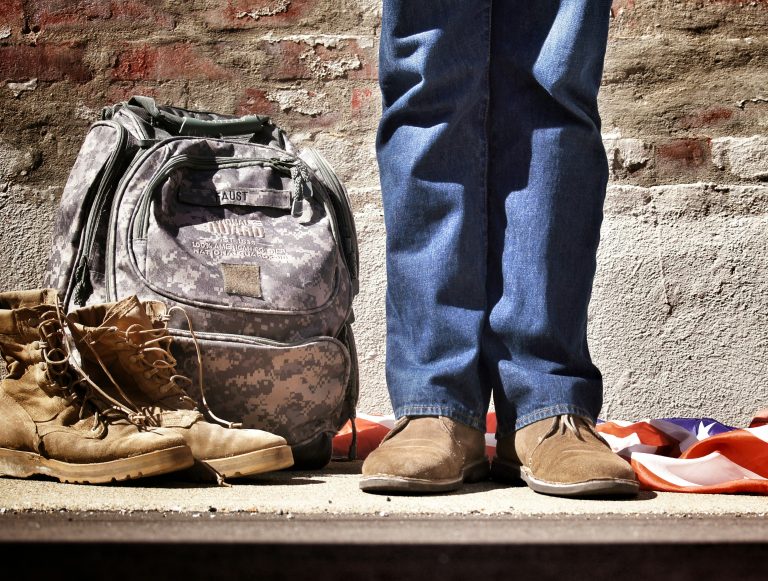Military Transition Overview
Understanding Military to Civilian Transition
Every year, approximately 200,000 men and women leave U.S. military service and return to civilian life. This process, known as the military to civilian transition, can be both exciting and challenging. Understanding this transition is crucial for making the change smoother and more manageable.
The transition from military service to civilian life involves adjusting to changes in career, lifestyle, and social environment. Many veterans report positive outcomes when transitioning to civilian workplaces, bringing diverse experiences, various skills, and military training to their new roles (VA). However, the process comes with its set of challenges, including finding meaningful employment, dealing with mental health issues, and navigating through numerous resources and programs.
Key Statistics
| Aspect | Data |
|---|---|
| Annual Military Transitions | 200,000 |
| Percentage Reporting Positive Outcomes | High |
| Major Organizations Involved | Department of Labor, Department of Defense, Veterans Affairs, Small Business Administration |
Understanding the significance and the scale of these transitions helps highlight the importance of support groups and programs. Programs like the Transition Assistance Program (TAP) provide essential resources for a successful transition. For more details, explore our section on military transition assistance program.
Challenges and Support
Transitioning from military to civilian life comes with several challenges. Employment, mental health considerations, and the need for a supportive network are paramount. Veterans often face difficulties translating military skills to civilian job qualifications, contributing to employment challenges. To navigate these hurdles, numerous support programs are available, such as veteran transition resources and veterans employment assistance.
To mitigate mental health issues, military and veteran support programs like Military OneSource Support and Vet Centers for Counseling offer essential services, helping veterans cope with their new environments.
Additionally, employment challenges such as military job search strategies and veteran entrepreneurship opportunities provide focused assistance to help veterans find suitable careers.
Importance of Planning
Planning your transition early is key. The TAP program recommends starting the transition process no later than 365 days before separating or retiring from the service (Military One Source). It is even suggested that retirees begin as early as two years before their planned retirement. This early planning includes attending military transition workshops and utilizing military transition resume writing services.
To ensure a smooth transition from military to civilian life, leverage the various resources and support groups available. For more insights, check out our military to civilian transition guide and military to civilian skills translation.
By understanding the inherent challenges and actively seeking out support systems, you can navigate this significant life change with confidence and success.
Transition Assistance Program (TAP)
The Transition Assistance Program (TAP) is designed to assist military personnel as they prepare to transition from military to civilian life. TAP offers a range of workshops, resources, and benefits aimed at making this process as smooth and successful as possible. This section covers the key aspects of TAP, including its workshops and the benefits of participating.
TAP Workshops and Resources
TAP provides a series of workshops to help you navigate through the transition process. These workshops are tailored to meet various needs, from employment to education and even entrepreneurship. Here are some of the most notable workshops offered:
- Employment Fundamentals of Career Transition (EFCT): Focuses on the basics of job hunting and resume writing, preparing you for the civilian job market.
- Wounded Warrior and Caregiver Employment Workshop (WWCEW): Specifically tailored for service members and their spouses who are wounded, ill, or injured.
- Career and Credential Exploration (C2E): Helps you explore various career paths and the credentials required for them.
| Workshop | Focus | Duration |
|---|---|---|
| EFCT | Job hunting, resume writing | 2 days |
| WWCEW | Employment for wounded warriors | 2 days |
| C2E | Career path exploration | 2 days |
| Managing Education | Education opportunities | 2 days |
| Entrepreneurship Track | Starting a business | 2 days |
For a comprehensive guide to TAP workshops, check out the Department of Labor’s TAP page.
TAP also provides the VETS Resource Guide, which is a collection of resources designed to help you achieve your potential in the workplace. This guide is a valuable tool for military transition support groups aiming to aid service members and their families. You can access it online or through your local transition center.
Benefits of TAP Participation
Participating in TAP offers numerous benefits that can significantly ease your transition from military to civilian life. Here are some of the key advantages:
- Adaptability to Civilian Life: TAP helps you become more adaptable to civilian life, offering resources for emotional, employment, and financial stability (VA Benefits).
- Comprehensive Support Network: TAP creates a support network that can provide a smooth transition for you and your family.
- Individual Transition Plan (ITP): Through the Capstone event, commanders confirm the achievement of Career Readiness Standards and a viable Individual Transition Plan (ITP), ensuring you are ready for civilian life. This must occur no later than 90 days before separating from active duty (Military One Source).
For more detailed information on how to navigate the various resources offered by TAP, check out our sections on navigating resources and creating a smooth transition.
Engaging with the Transition Assistance Program ensures you are well-prepared for your new chapter in civilian life. By participating in TAP workshops and utilizing the available resources, you can make your transition as seamless as possible. Visit the military transition assistance program for additional insights and support.
Support Programs for Veterans
Transitioning from military service to civilian life can be challenging. Fortunately, there are several military transition support groups that can help you navigate this transition smoothly. These programs offer various resources tailored to assist you in adapting to civilian life.
BeThere Peer Assistance Program
The BeThere Peer Assistance Program, in partnership with Military OneSource, provides valuable support for service members, their families, and transitioning veterans up to 365 days after separation or retirement. Through this program, you can talk privately with peer coaches who are veterans, service members, or military spouses.
| Feature | Description |
|---|---|
| Eligibility | Service members, their families, and transitioning veterans |
| Access | Up to 365 days post-separation or retirement |
| Support | Peer coaching from veterans, service members, or military spouses |
For more information, visit Military OneSource Support.
Vet Centers for Counseling
Vet Centers offer free individual and group counseling for eligible service members, veterans, and family members, regardless of VA health care enrollment or disability compensation. These centers are a great resource for those seeking mental health support during the transition.
Services Offered:
- Individual counseling
- Group counseling
- Family counseling
| Feature | Description |
|---|---|
| Eligibility | Service members, veterans, and their families |
| Cost | Free |
| Services | Individual, group, and family counseling |
To locate a Vet Center near you, visit Vet Center Locations.
Military OneSource Support
Military OneSource provides a range of expert support services designed to connect military personnel and their families with the best available resources to fit their needs. Available 24/7, you can reach out to them at 800-342-9647 for immediate assistance.
| Feature | Description |
|---|---|
| Access | 24/7 via 800-342-9647 |
| Eligibility | Military personnel and their families |
| Services | Connecting with expert support and resources |
For additional details on the services offered, visit our page on veteran transition resources.
These programs are just a few examples of the support systems in place to help you through your transition. For more tips and guidance, check out our articles on jobs for ex military personnel and veteran entrepreneurship opportunities.
Mental Health Considerations
Challenges of Mental Health
Transitioning from military to civilian life can present numerous mental health challenges. Many veterans face difficulties such as trauma, anxiety, and depression, often stemming from their service experiences. The U.S. Department of Veterans Affairs estimates that 1 in 3 veterans demonstrate symptoms of depression during their transition (BestMind Behavioral Health).
The mental health issues faced by veterans can be compounded by substance abuse. Veterans may turn to alcohol or drugs to help cope with the lingering effects of combat, such as physical pain or psychological trauma. A significant 46% of veterans reported alcohol or substance abuse during active duty, and 42% continued these behaviors after returning to civilian life (BestMind Behavioral Health).
| Mental Health Challenge | Percentage of Affected Veterans |
|---|---|
| Symptoms of Depression | 33% |
| Alcohol or Substance Abuse During Active Duty | 46% |
| Alcohol or Drug Use After Returning to Civilian Life | 42% |
According to a 2014 study, nearly 1 in 4 active duty members showed signs of a mental health condition, emphasizing the need for more targeted mental health resources during their transition (NAMI). It’s crucial for veterans to recognize these challenges and seek the necessary support.
Mental Health Support for Transitioning Veterans
To address these mental health challenges, various support groups and programs are available to help veterans through their transition. These programs focus on providing mental health resources, fostering community support, and promoting well-being.
Veterans can benefit from the BeThere Peer Assistance Program, which offers support through connecting them with peers who have experienced similar transitions. This peer-to-peer assistance helps veterans feel understood and less isolated.
Vet Centers provide counseling services specifically tailored for veterans transitioning out of the military. These centers offer individual and group counseling sessions addressing various mental health needs. For more information on their services, visit Vet Centers for Counseling.
Military OneSource is another invaluable resource, offering 24/7 support for mental health and other transition-related issues. Their comprehensive services include counseling, resources, and referrals to local support groups. Learn more about their offerings at Military OneSource Support.
For those seeking additional help, it’s important to know that seeking mental health treatment will not impact your career or security clearance under the revised 2014 rules (NAMI). This policy change aims to encourage military personnel to prioritize their mental health without fear of negative repercussions.
Supportive networks and targeted resources can significantly aid in navigating the mental health challenges associated with transitioning to civilian life. By leveraging these programs and seeking help when needed, you can work towards a smoother and more successful transitioning out of the military.
Challenges Faced During Transition
Transitioning from military to civilian life presents several challenges. Among the most pressing issues are employment and substance abuse.
Employment Challenges
Finding a job is often the biggest hurdle for veterans. In a survey of 1,000 U.S. military veterans, 33% stated that employment was their most significant challenge during the transition (BestMind Behavioral Health). It takes an average of four months for veterans to secure a civilian job. Additionally, nearly 20% of veterans surveyed had never created a resume before.
| Issue | Percentage of Veterans Affected |
|---|---|
| Finding Employment | 33% |
| Never Created a Resume | 20% |
These figures highlight the need for effective resume writing and job search strategies. Veterans can find support through various resources, including veterans employment assistance and military transition workshops.
It’s essential to leverage support groups and programs designed to help with transitioning from military to civilian life. Consider exploring military to civilian skills translation and guidance for integrating military service on a resume to improve job prospects.
Substance Abuse Awareness
Substance abuse is another significant challenge faced during the transition. According to BestMind Behavioral Health, 46% of veterans reported alcohol or substance abuse during active duty, and 42% continued to struggle with substance abuse after returning to civilian life.
| Substance Abuse Period | Percentage of Veterans |
|---|---|
| During Active Duty | 46% |
| Post-Civilian Transition | 42% |
Veterans often turn to alcohol or drugs to cope with trauma, anxiety, depression, injury, physical pain, and other lingering effects of combat. Substance abuse and mental health challenges can create a dangerous cycle, putting veterans at high risk during the transition period.
Support programs such as Vet Centers for Counseling and Military OneSource Support offer valuable assistance. Awareness and education about the risks of substance abuse are critical for a successful transition. Resources like mental health support for transitioning veterans and transitioning out of the military can provide additional help.
By utilizing available resources and support groups, you can navigate these challenges more effectively and achieve a successful transition.
Transitioning Successfully
The process of transitioning from military to civilian life can be challenging. Successfully navigating this transition requires careful planning, understanding available resources, and creating a smooth pathway from service to civilian employment. Here are some steps to help you through this significant change.
Navigating Resources
Using available resources effectively is essential. There are numerous programs designed to assist you in your transition.
Transition Assistance Programs (TAP)
The Transition Assistance Program (TAP) offers workshops, resources, and support to help you gain the knowledge and skills needed for civilian life. Participation in TAP is mandatory, starting no later than 365 days prior to your transition (Military One Source). One key component of TAP is the Capstone event, which must occur no later than 90 days before separation. It ensures you have met the Career Readiness Standards and have an Individual Transition Plan (ITP) (Military One Source).
| Key Components of TAP | Description |
|---|---|
| DOD Transition Day | Covers personal and family transition, workplace differences, stressors, and communication during the transition process. |
| Capstone Event | Mandatory concluding event to verify readiness and confirm transition plans. |
Additional Resources
Several other organizations and programs offer resources for transitioning service members:
- BeThere Peer Assistance Program: Provides peer-to-peer support to help navigate personal challenges.
- Vet Centers: Offer counseling services to help cope with the psychological aspects of the transition.
- Military OneSource: Provides a wide range of resources from financial planning to family counseling (Military One Source).
For more detailed guidance, check out our military to civilian transition guide and explore various veteran transition resources available to you.
Creating a Smooth Transition
Creating a smooth transition involves careful planning and utilizing a range of strategies to ease the shift from military service to civilian life.
Career Preparation
- Resume Building: Translating your military skills into a civilian resume can be challenging. Explore our resource on military service on a resume to understand how to effectively present your experience. Additionally, consider services like military transition resume writing services.
- Job Search Strategies: Developing a robust job search strategy is crucial. Networking can be very effective, so consider attending military transition networking events. Utilize veterans job transition resources to find potential employment opportunities.
| Strategy | Description |
|---|---|
| Resume Building | Translating military experience to civilian-friendly language. |
| Job Search Strategies | Attending networking events and using targeted job tools. |
Skill Building and Education
- Workshops and Classes: Participate in military transition workshops and military transition skill-building workshops. These will help improve your qualifications for civilian jobs.
- Career Assessments: Utilizing military transition career assessments can help you identify suitable civilian career paths based on your skills and interests.
Emotional and Family Support
- Counseling Services: Engage with Vet Centers or Military OneSource for emotional and psychological support.
- Family Transition Support: Ensure your family is also supported through resources like military transition spouse support.
By carefully navigating the available resources and employing the right strategies, you can create a smoother transition from military to civilian life. Explore further articles such as transitioning out of the military and military transition success stories for additional guidance and inspiration.







